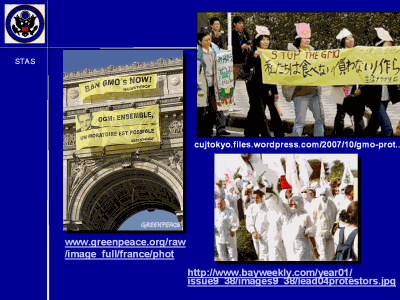| front |1 |2 |3 |4 |5 |6 |7 |8 |9 |10 |11 |12 |13 |14 |15 |16 |17 |18 |19 |20 |21 |22 |23 |24 |25 |26 |27 |28 |29 |30 |31 |32 |33 |34 |review |
 |
Yet well-meaning people around the world still believe that GM crops are dangerous, their beliefs fueled by misinformation even disinformation on the Internet, from public interest groups and the communications media. Although some European countries, particularly Spain, are growing GM crops, much of Europe, Japan and most of Africa remain adamantly opposed to crops improved using molecular techniques. This has resulted in restrictive and costly regulation of such crops or simply banning of their use and import incredibly, even as food aid. With almost 3 million people at risk of starvation as the result of drought, President Mwanawasa of Zambia refused to accept shipments of corn from the U.S. in 2002 because he could not be sure that the corn was GM-free. Norman Borlaug, who at 94 still works indefatigably in Africa, grows impatient: We need sophisticated scientific technology to boost our production," he said at a conference convened in Kenya last summer in his honor. He sums up more than a decade of experience with GM cotton, soybeans, corn and other crops, including papaya, saying There is no evidence to indicate that biotechnology is dangerous. Indeed, he is confident that biotechnology is the surest way to ensure food security in Africa and other developing countries. |